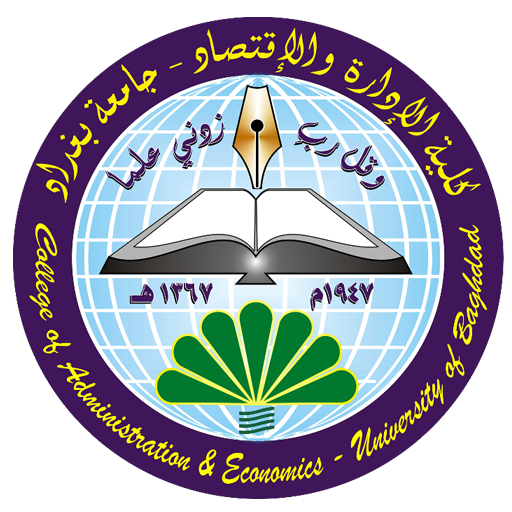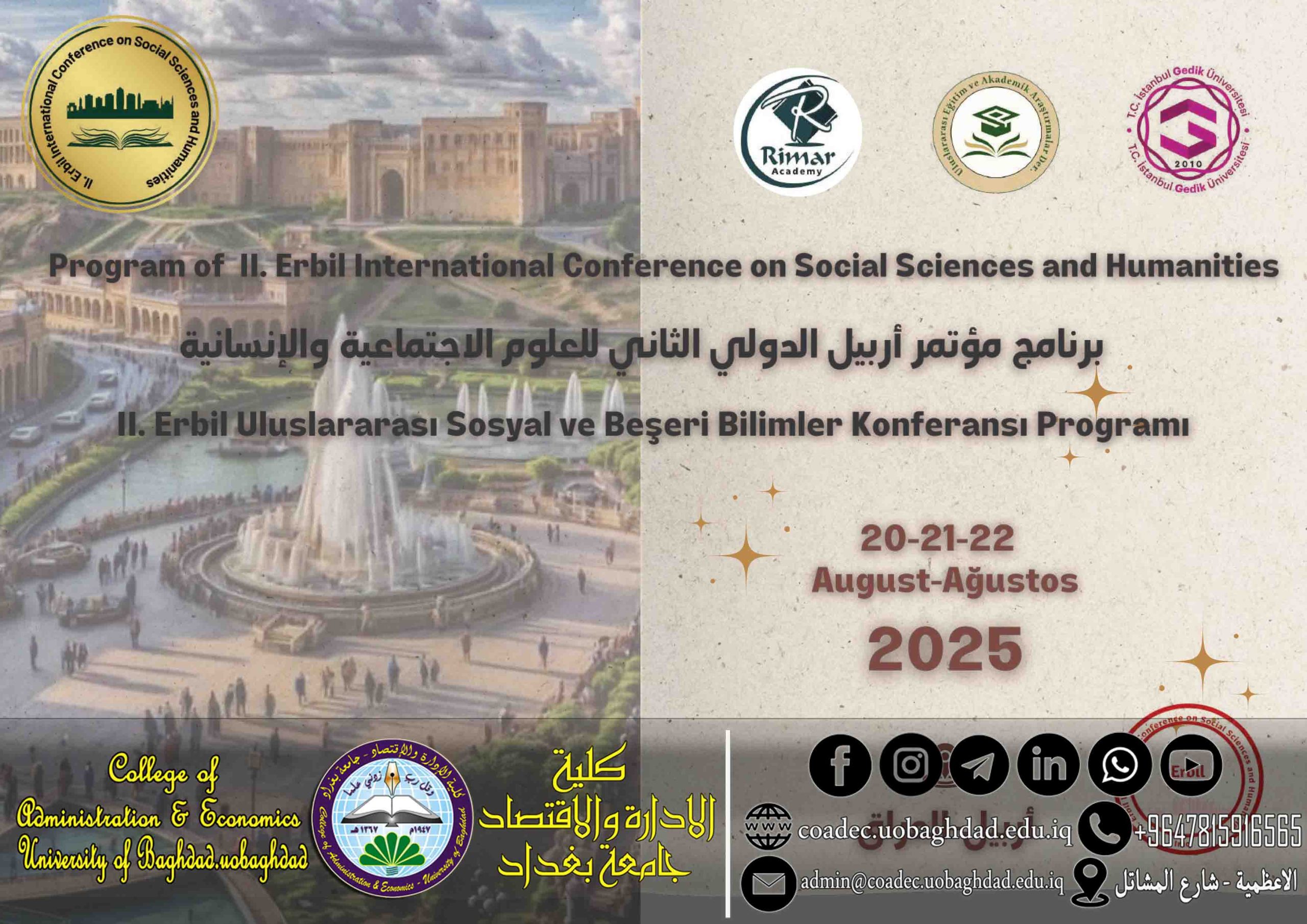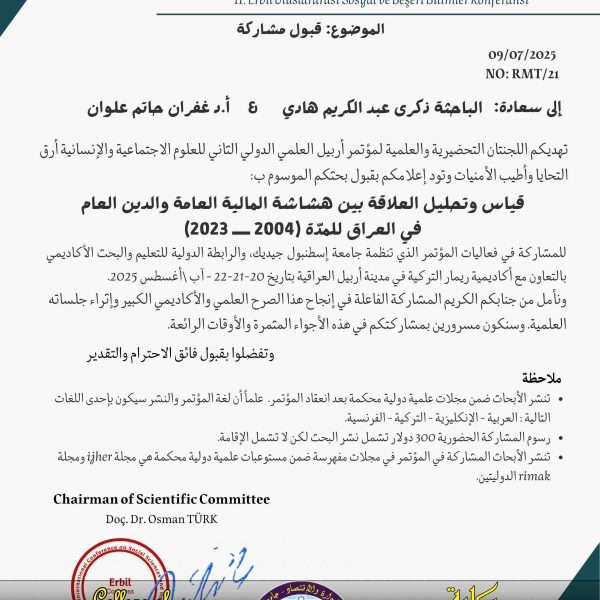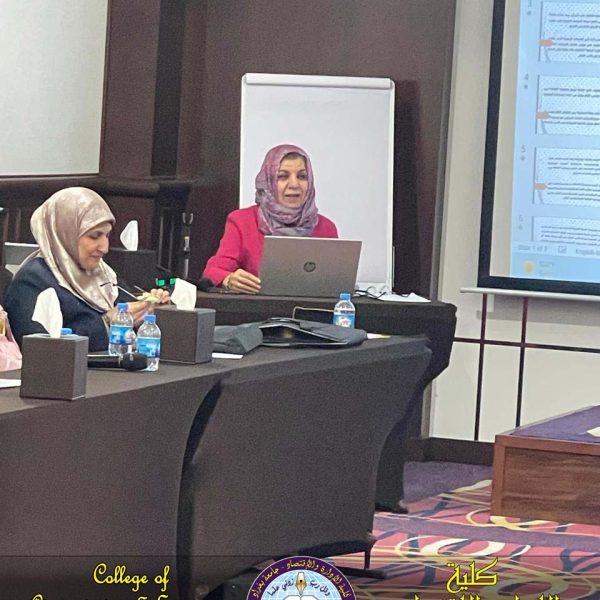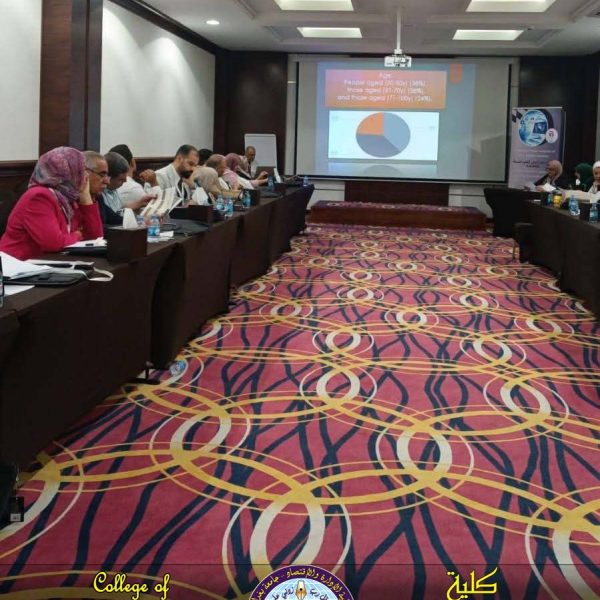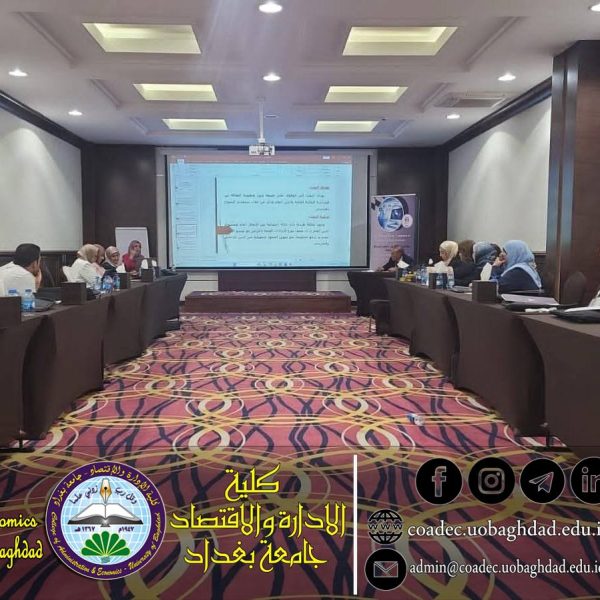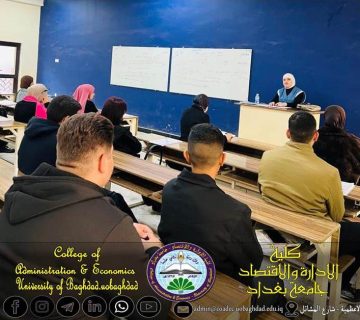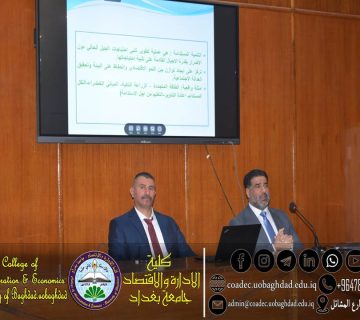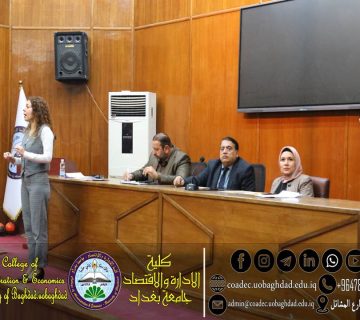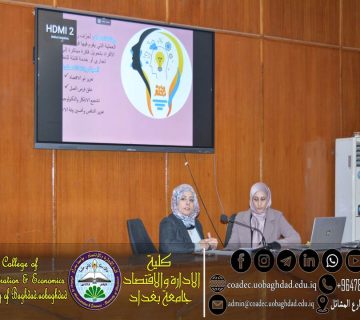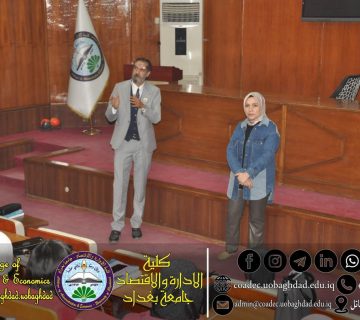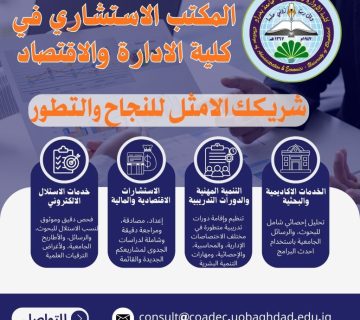As part of ongoing efforts to advance scientific research and foster academic exchange, Professor Dr. Ghufran Hatim Alwan—faculty member in the Department of Economics at the College of Administration and Economics, University of Baghdad, and a specialist in econometrics—participated in the proceedings of the “Second Erbil International Conference on Social and Human Sciences.” The event was organized by Remar Academy in collaboration with Erbil University and held from August 20 to 22, 2025, in Erbil, Iraq.
Dr. Ghufran’s participation featured a co-authored research paper entitled “Measuring and Analyzing the Relationship Between Public Finance Fragility and Public Debt in Iraq (2004–2023).” The study examined the structural challenges confronting Iraq’s fiscal policy and their implications for public debt sustainability, in light of the economic and financial transformations the country has experienced over the past two decades.
Abstract
The imbalance of the public finance structure in Iraq creates a fragile financial environment that contributes to the exacerbation of public debt, as a result of excessive reliance on unstable resources and the increase in unproductive public spending. The research aims to measure and analyze the relationship between the fragility of public finance and public debt during the period (2004-2023), in light of an economic environment characterized by financial instability and fluctuating oil prices, which are the main source of public revenues. The research is based on the hypothesis that there is a statistically significant direct relationship between public spending and the level of public debt, as the weak diversity of public revenues, in conjunction with the expansion of public spending, pushes the government to finance the financing gap through internal and external debt. The importance of the research lies in diagnosing one of the most prominent structural challenges facing the Iraqi economy, especially the weakness of the public revenue base and the almost total dependence on rentier resources (oil), which leads to a widening of the financial deficit and an increase in resorting to public debt. To achieve the research objectives, the Autoregressive Distributed Lag (ARDL) model was adopted to measure the relationship in the short and long term, after subjecting the time series to unit root tests (ADF) and (p.p) to verify. From its stability.
The results showed that the fragility of the financial structure resulting from the decline in non-oil revenues, fluctuations in global oil prices, and the absence of fiscal discipline rules are among the most prominent factors that stimulate an increase in public debt with every financial shock or decline in global oil prices. This threatens financial stability and limits the effectiveness of fiscal policy.
The study recommends the need to implement structural fiscal reforms that include diversifying revenue sources, reducing dependence on oil, and activating fiscal discipline tools. This will contribute to reducing the deficit and limiting recourse to public debt to enhance long-term fiscal sustainability.
This scholarly contribution aligns with the objectives of Sustainable Development Goal 17 (Partnerships for the Goals) and Goal 8 (Decent Work and Economic Growth), by emphasizing the critical role of sound fiscal policies in promoting economic stability and sustainable growth. Furthermore, the research supports Goal 16 (Peace, Justice, and Strong Institutions) through its advocacy for building more efficient and transparent financial institutions.
The participation underscores the Department of Economics at the University of Baghdad’s commitment to addressing national economic challenges through rigorous research and to providing evidence-based insights that inform public policy. It reflects the department’s dedication to integrating academic knowledge with the practical demands of sustainable development in Iraq.

